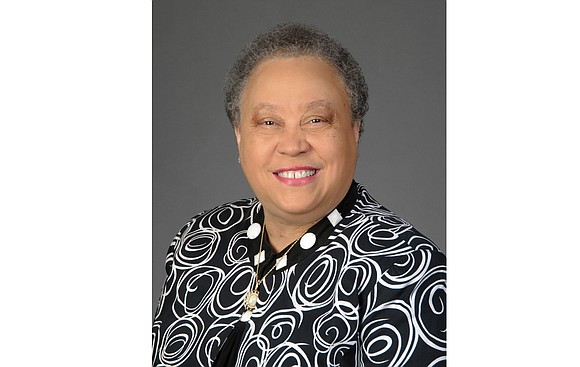VSU fires 10 professors just days before start of classes
8/11/2017, 11:16 a.m.
By Julexus Cappell and Jeremy M. Lazarus
Just ahead of the start of the fall semester next week, Virginia State University has axed nearly 10 professors, scrambling schedules for students who previously signed up to take their fall classes.
VSU defended its action as bringing its faculty in compliance with the regulations of its accrediting agency, the Southern Association of Colleges and Schools, as its seeks reaffirmation of its accreditation.
According to the university, the professors whose contracts were not renewed were found to lack proper credentials to teach the assigned courses.
None of the non-tenured faculty members impacted appears to have raised a protest, and it does not appear the VSU Faculty Senate sought to intervene.
However, it is not clear that the firings were based on the SACS guideline that requires qualified faculty.
While SACS prefers professors to have tertiary degrees, such as a doctorate, in the field in which they are teaching, that is not required.
“It is not our rule that you must have a degree in the field in which you teach,” according to Dr. Belle S. Wheelan, president of SACS’ Commission on Colleges.
However, “you must have something that qualifies you to teach in the field, for example, certifications, professional experience, awards” or other items that the university can document and use to justify employment.
Among the VSU departments hit hardest is Mass Communications, which lost three of its nine listed professors, leaving in limbo students majoring in the field who had registered for courses to be taught by the professors.
Ronald E. Carrington of Richmond is one of the professors from the department who was let go. Packed up and preparing to leave after four years as an associate professor, Mr. Carrington expressed concern about the quality of education the students will receive from the department in the wake the reduction.
Despite losing his job, he praised VSU for seeking to comply with SACS’ requirements for faculty, but wished VSU had consulted SACS “about changing needs in areas of study, especially unique areas such as mass communications.”
However, a review of his résumé, based on Dr. Wheelan’s statement and a close reading of the SACS standard for faculty, indicates that VSU could have documented and justified his employment.
Since graduating from Hampton University in 1973 with a degree in mass media arts, Mr. Carrington, 65, qualifies as an expert in mass communications as a result of his three decades in the field.
He worked for 10 years for three Boston TV stations as production manager, director, producer, writer and news director; was a producer and project senior manager for three years for BET; served as creative director or president of three private companies that produced advertising, market research, website development, public relations and video campaigns for national and regional entities; and taught classes at three other schools, including Boston University, University of Phoenix and Virginia Commonwealth University.
He most recently has completed freelance writing and photography assignments for the Richmond Free Press.
He also holds a master’s degree in education from VCU, and has earned certificates in additional studies at the Disney Institute in Florida and the University of Javariana in Bogota, Colombia.
“What credentials would better serve students in mass communications?” he asked rhetorically, noting that the other two professors who were let go were equally qualified.
He said he was told by VSU that the fact his master’s was in education disqualified him from teaching courses in mass communications, but the SACS standard does not indicate such.
Instead, the requirement is for each school to employ “competent faculty members qualified to accomplish the mission and goals of the institution.”
While SACS encourages accredited institutions to give “primary consideration” to having faculty with the highest earned degree in a discipline, the standard states the institution is allowed to consider “competence, effectiveness, and capacity, including, as appropriate, undergraduate and graduate degrees, related work experiences in the field, professional licensure and certifications, honors and awards, continuous documented excellence in teaching or other demonstrated competencies and achievements that contribute to effective teaching and student learning outcomes.”
“I am disappointed,” said Kymontra Hyman, a VSU junior in mass communications with a concentration on video production. She had hoped to obtain an internship with Mr. Carrington during the upcoming semester.
“The department isn’t the same without him,” she said. “He was one of the professors that actually cared about the students.”
Terin Valentine, a senior majoring in mass communications described Mr. Carrington “as a great professor who never denied any student the opportunity to be successful.
“His absence leaves me astray,” she said, “because I was one of his many interns who was ready to learn more about their craft. Now, I don’t know what I will do.”








